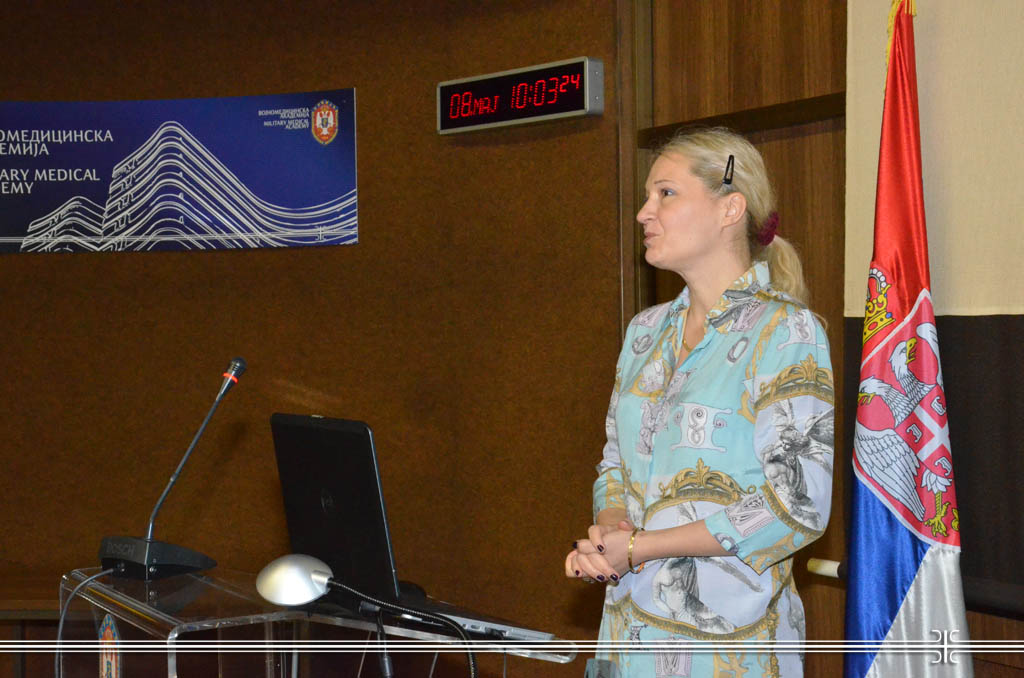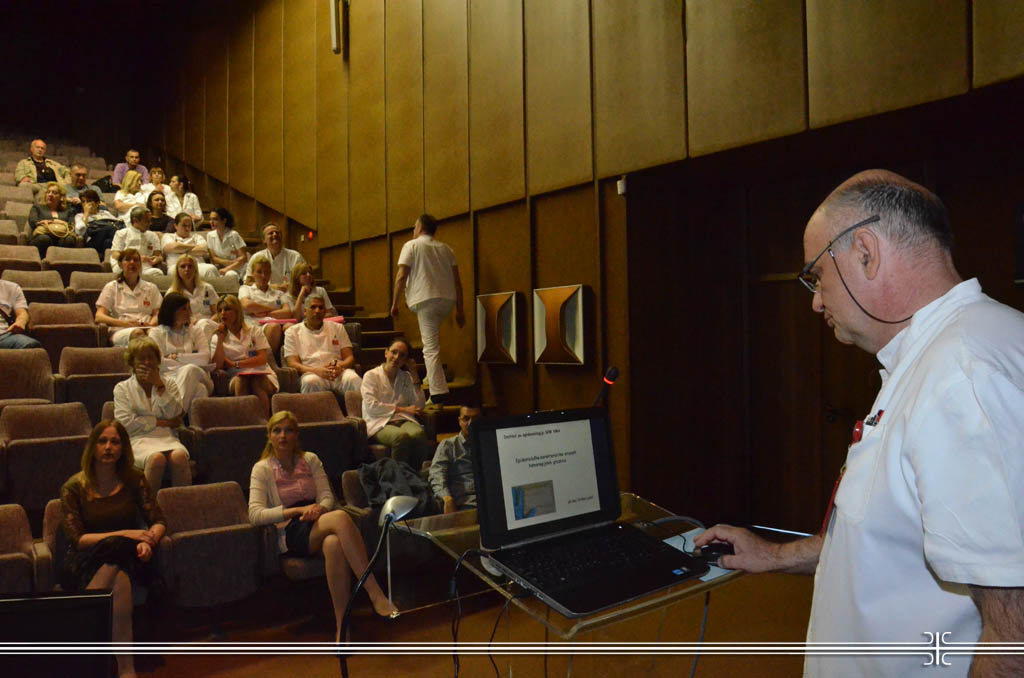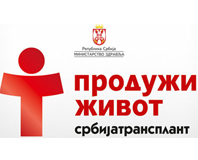
Ebola as a Global Threat
08. 05. 2015
 The course entitled "Ebola-regional problem that has grown into a global threat," organized by the Institute of Epidemiology, Sector for Preventive Medicine was held at the Military Medical Academy. The lecturers were Head of the Institute of Epidemiology Colonel Associate Professor Dr. Srdjan Lazic, Head of the Section for Prevention and Control of Nosocomial Infections Prof. Vesna Šuljagić, Dr. Milena Krstic and Major Dr. Zeljko Jadranin from the Institute of Epidemiology MMA and Dr. Sonja Anastasievska from the Institute of Microbiology MMA.
The course entitled "Ebola-regional problem that has grown into a global threat," organized by the Institute of Epidemiology, Sector for Preventive Medicine was held at the Military Medical Academy. The lecturers were Head of the Institute of Epidemiology Colonel Associate Professor Dr. Srdjan Lazic, Head of the Section for Prevention and Control of Nosocomial Infections Prof. Vesna Šuljagić, Dr. Milena Krstic and Major Dr. Zeljko Jadranin from the Institute of Epidemiology MMA and Dr. Sonja Anastasievska from the Institute of Microbiology MMA.The course was opened by the Head of the Sector for Preventive Medicine Prof. Dr. Sonja Radakovic who said that Ebola has become a focal issue in preventive medicine since the outbreak last year. The Ebola virus killed about 11,000 people so far, about 25,000 are affected by the virus and since there is no vaccine for the treatment of this virus, preventive measures are key point. Mainly owing to that, and having the proper response, the Republic of Serbia and the Military Medical Academy, the Republic Expert Commission for the control of hospital infections delivered among the first countries in the world a guideline to prevent the spread of the Ebola virus.
In the first part of the course the epidemiological characteristics of viral hemorrhagic fever, with a special attention to Ebola were addressed. The lecturers presented data on outbreaks of Ebola in the world, starting from 1976 when the disease was first detected near the Ebola River in the area of the present Democratic Republic of Congo. Also, it was discussed about the lessons learned from previous outbreaks and the current outbreak, which hit Guinea, Liberia and Sierra Leone in West Africa the most. The second part of the course was mostly devoted to the preparation of the members of the Serbian Armed Forces for peacekeeping missions, for who the MMA organize education about the ways of virus transmission and adequate measures for personal protection from Ebola and other hemorrhagic fevers implementation. The lectures covered the importance of microbiological diagnosis of viral hemorrhagic fever and Ebola.
Ebola is a serious, often fatal, zoonotic infection that is spread from person to person, primarily through direct contact with blood and other body fluids of infected patients. The incubation period after infection is 2 to 21 days, and patients are not considered contagious until they develop symptoms. Special precautions must be implemented for passengers in the international traffic, traveling to or returning from the Ebola-affected countries.
















